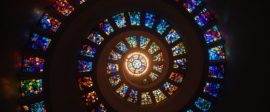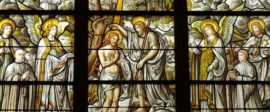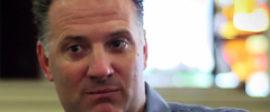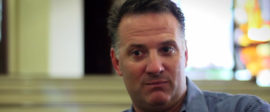God at Work: Seeing and Reflecting God the Protector (Psalm 68 Sermon Notes)
Sermon Notes / Produced by The High Calling
Scripture
Psalm 68:4-6
4 Sing to God, sing praises to his name;
lift up a song to him who rides upon the clouds—
his name is the Lord—
be exultant before him.
5 Father of orphans and protector of widows
is God in his holy habitation.
6 God gives the desolate a home to live in;
he leads out the prisoners to prosperity,
but the rebellious live in a parched land. (NRSV)
Outline
Theme: To see and reflect God the protector we must:
Acknowledge the depths of human frailty.
Admit the temptations of power.
Act as a community.
Conclusion: Affirm that ultimate protection is only in God.
Sermon Development
Most of us know the old story of a man who was caught in a flood and prayed for the Lord to protect him. When he is offered a ride, he declines; when a boat arrives to take him away to safety, again he declines; when a helicopter arrives to fly him away at the last moment before the flood waters take him again, he declines, all the while saying, “The Lord will protect me.” Then he drowns. When he arrives in heaven, he asks why God didn’t protect him after he prayed so earnestly. God answers, “What do you mean I didn’t protect you? I sent a car, a boat, and a helicopter. What else did you want?”
How does God protect? Through instruction in the Scripture? Certainly. Through events and circumstances? Indeed. But the way that God usually protects us is through us. Most often, we are called to be the protective arms of God. It is a job for some of us, and a call for all of us.
Some of us have occupations where we are called to be protectors. Some of us are even called by God to be those government employees who Romans 13 speaks of as “bearing the sword…to execute wrath on wrongdoers.” (Imagine if it said that on police car doors!) The communion table is filled with the uniforms and equipment of some of those. But the vocation of reflecting God the protector is given to all of us. So, let’s discuss how to see and reflect God the protector. Let me suggest three tasks for all of us.
Theme: To see and reflect God the protector we must:
Acknowledge the depths of human frailty.
Admit the temptations of power.
Act as a community.
Acknowledge the depths of human frailty
If we are going to see and reflect God the protector, we must begin confronting our tendency to think that everyone can make it on their own—that really we’re all quite tough and can take care of ourselves. We live in a culture that reinforces that everyone should just be able to take care of themselves, pull themselves up by their own bootstraps, watch out for themselves.
But while resilient, humans, especially at certain times, are also quite frail. If a person is touched in the wrong way at the wrong time, their lives will bear scars that never go away. If an abused child is disbelieved when she tells about it, it is like another act of abuse. A victim of violent crime can spend years living in terror at every bump in the night. A senior citizen in a rest home can give up and die when they feel as if their desires are not protected. We can’t possibly control all of the potential harm in our way, whether it comes from faulty tires or the flying bullets of a drive-by shooting. And our inner life and the wounds we carry of fears, anxiety, or depression make us even more fragile when faced with new challenges.
The Bible doesn’t speak of self-reliance and doesn’t advocate stoicism. Instead we see a God of compassion who has suffered in every way we have, who is described as protecting people who are bruised reeds and wandering lambs.
If we want to protect others, we must begin by recognizing the depths of human frailty that is evident in everyone, even, and maybe especially, those of us who see ourselves as protectors.
Admit the temptations of power
To be frank, this is just a continuation of the last thought. For if we must acknowledge the depths of human frailty, we must also acknowledge the depths of our own moral frailty.
To be a protector is to use power. Let’s never forget the words of Lord Acton: “Power corrupts and absolute power corrupts absolutely.” For those of us who are called to wield power for the protection of others, the temptation to be corrupted is ever present. Whether it is the tendency to talk in a condescending voice to one in our care, to use our influence for personal gain, or even to abuse power and force that we may have even been trained and charged with using, we must readily acknowledge how easily a good desire to be protector of others can turn into a spoiled prideful desire to control or harm others. Let us also admit that in those areas where we are most passionately committed to protecting the vulnerable, we are more prone to abusing power to do so.
We must admit the temptations of power that come with a desire to protect. Just watch a momma bear separated from her cubs or a young dad who has his child harmed by another. While we certainly understand the desire to take matters in our own hands, the Scriptures warn us that “Vengeance is mine, says the Lord, I will repay,” expressly forbidding the people of God to ever cross the line from protection to revenge.
If we acknowledge the depths of human frailty and admit our own temptations to abuse power, then we can be useful for protecting others in a God-reflecting way. But if we want our protection to truly reflect the character of God, then we must take one more step and learn to act together as a community.
Act as a community
For most of history, protection was a community responsibility. Even police forces, as we know them, have only been present for two hundred years or so.[1] But protection wasn’t so much trying to stop harm as it was creating a safe environment. And this was the shared responsibility of everyone.
The Laws of Israel were written so that the people of God would demonstrate a kind of care and protection for each other that would reflect God’s own care for the world. This is why the Ten Commandments start by telling us to care for our parents as they age. And James 1:27 tells us that if we are to accurately reflect the God who in Psalm 68, “the Father of orphans and the protector of widows,” then we are to be protectors of orphans and widows ourselves. “Religion that is pure and undefiled before God, the Father, is this:” James writes, “to care for orphans and widows in their distress, and to keep oneself unstained by the world.”
So healthy communities protect people by seeking to insure justice and promote love. This is why in our family we teach our children that God wants big people to care for little people, people who have much to care for people who have less, and that all of us are called not just to “do no harm,” but to always do what is loving and right. Loving our neighbor, as the story of the good Samaritan shows, is our joint responsibility as we protect those who are left undefended and vulnerable in an often harsh world.
Perhaps the greatest example of this that I have ever seen occurred in World War II in the village of Le Chambon, France. The people of this town were deeply committed Christians.
Over a four-year period, refugee Jews began to stumble into the village seeking shelter. The people of Le Chambon collectively decided that if anyone came to them looking for refuge they would take them in, shelter them, and protect them from harm. Families without homes or hope would knock on doors in Le Chambon and would find a barn to sleep, a spare room, an extra bed. Usually a mother would open the door and invite them in. When authorities would come looking for Jews to “register,” the head of the house would say that all who lived in his house were members of his family—that they were all brothers and sisters. As the war went on, they continued to shelter the Jews—more and more so at the grave risk of their very lives. The people of Le Chambon, France, saved 5,000 Jews from certain death. All because they decided that no matter what was happening around them, no matter the cost, no matter what even the law had become in their nation, they were going to live out their call as protectors in the manner of Jesus.
Conclusion: Affirm that ultimate protection is only in God
And in the manner of Jesus, according to the call of God, this is the key. It means living with our hands connected to our hearts. Our efforts and desires to protect others if disconnected from God lead only to more abuse in the world. History tells us that well-meaning liberators become dictators, if they seek to protect in their own power and with their own wisdom. Indeed we must continually see God, if we wish to reflect God.
So, let us not only acknowledge the depths of human frailty, admit the temptations of power, and act as a community, but let us also loudly and clearly affirm that ultimate protection is only in God.
The Scriptures reveal what we may not always be able to see, that God is in the world protecting the frail and vulnerable, restoring the broken, and using everything—even our pain—for good. God is the only one who can handle power perfectly and justly. And God is transforming his people to be a reflection of God’s goodness and care. Let’s also not forget that the ultimate act of protection that is protecting us from the effects of sin, he did all by himself.
We protect others, because Christ has protected us.
Offer a prayer for police officers, firefighters, paramedics, lifeguards, lawyers, military personnel, daycare workers, building inspectors, public health inspectors, child welfare workers, social workers, advocates. And all of us…
********************************************************************
Tod Bolsinger has been the Senior Pastor of San Clemente Presbyterian Church in San Clemente, California, since 1997. Previously he served for ten years at First Presbyterian Church of Hollywood. He earned a Ph.D. in Theology and Master of Divinity from Fuller Theological Seminary. He teaches for Fuller Seminary and Denver Seminary, is the author of two books, It Takes a Church to Raise a Christian and Showtime, blogs at http://bolsinger.blogs.com, and consults for TAG Consulting.
Click here for a PDF of this sermon.
Other sermons in this series on God at Work:










